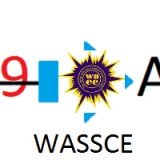Search Engine Optimisation (SEO) is the practice of improving the visibility of a website in search Engine’s organic results. Search Engine Optimization is divided into On-page SEO and off-page SEO.
On-page SEO has to do with improvements you make on a page/site to make it Search Engine friendly as well as relevant to your different targeted keywords.
Off-page SEO has to do with what you do outside a page/site to improve its visibility in search engines. Off-page SEO is about building authority, trust and relevance for a website on other pages of the web.
Link building
Link building is the practice of pursuing backlinks for your website.
Off-page SEO used to be the same as link building. But as search engines evolved, other factors besides links tell a website’s authority, trust and relevance. These metrics could range from social media metrics to mention.
Link building is the best way to improve search visibility.
“backlinks is a “really really big win in terms of quality for search results” in a webmaster video. —Matt Cutts, Head of Webspam at Google
Amit Sighal, former head of Google’s core ranking team has said, ” Links are clearly an important signal about the importance of your content. They’re still valuable (this occurs around 6:21 in the video below)”.
So will all links help your search engine result visibility? The short answer is no. According to Cutts:
No, not all link building is bad. The philosophy that we’ve always had is if you make something that’s compelling then it would be much easier to get people to write about it and to link to it. And so a lot of people approach it from a direction that’s backwards. They try to get the links first and then they want to be grandfathered in or think they will be a successful website as a result.
Their goal should really be to make a fantastic website that people love and tell their friends about and link to and want to experience. As a result, your website starts to become stronger and stronger in the rankings.
So it’s a win-win situation if you build relevant links to something that’s useful and valuable.
Link relevancy
Search engines use the following to determine the relevancy of a page:
1) The anchor of the link
2) The content of the page the link is on
3) Co-citations
1). The anchor is the clickable text that is being hyperlinked. In this link: SEO, the anchor is “SEO”.
For example, lets say you wanted your business to rank for “student scholarships”. To show Google your site was relevant to this query, you would try and get links with the anchor “scholarships for students” and those similar to that such as “study scholarships”, and “scholarships”.
2). The content of the page a link is on does not only include the words on the page, but also the meta data on the page, such as the title and description.
Going back to the student scholarships example, you would want to get links from other student scholarships websites & articles about scholarships.
3). To help you understand what a co-citation is, I’ll use this definition from Sourceforget.net:
If A and B are both cited by C, they may be said to be related to one another, even though they don’t directly reference each other. If A and B are both cited by many other items, they have a stronger relationship. The more items they are cited by, the stronger their relationship is.
Going back to the example of students scholarships, you’d want to get links from other pages and websites that link to your competitors.
In conclusion, to rank for Keyword A, you want to get links with the anchor “Keyword A”, that are on pages about Keyword A, and that are on pages that link out to other websites that are also about Keyword A.
Link authority
When someone links to your site, they pass authority (also known as link juice) to that page. Think of a link to your site as a vote. So if Page A links to Page B, it’s vouching for it, and so, passes some authority from Page A to Page B.
But not all the authority of Page A is passed to Page B. Page A’s authority is divided up into the different pages it links to. For example, if Page A’s authority is measured with 100 votes, and it linked to 5 different pages, then each page of those links passes 20 votes per page it links to. This means that you want to get links from pages that have a low number of outbound links and a high amount of authority. Note: The links towards the top of a page passes more link juice that those at the bottom.
Domain authority and page authority
1). Domain level authority
BBC.com has a higher domain authority than epicdigits.com. This means a link from bbc.com with all else equal is more superior to a link from epicdigits.com.
2). Page level authority
To explain this, let’s consider 2 pages that are equal in every way except in the number of links to each page. If Page A has obtained 20 links that pass 100 votes and Page B has obtained 20 links that pass 200 votes. Then Page B would have a higher page authority. Let’s take another example to explain this further: If Page C has 10 links that pass a total of 100 votes and Page D has 20 links that pass a total of 90 votes, then Page C would be more authoritative even though it has lesser links than Page D.
Why is this so? The answer to this question has be discussed before –kinda. But in simple terms, this is because, not all links are equal.
Trust Rank
This metric determines how trustworthy your site is based on who is linking to it. If a lot of trustworthy sites are linking to your site, then it would have a high Trustrank. For example: Getting links from authoritative sites such as usa.gov, cnn.com, bbc.com and nytimes.com is different from getting links from sites like larnedu.com, and so forth.
Anti TrustRank
This is the reverse of TrustRank. In other words, if your site links to spam sites, then it’s probably spam itself. So in simple terms, who you’re linking to is just as important as who’s linking to you.
Link diversity
All links pointing to your site needs to be diverse and natural as much as possible. If most of your links come from a site with the same anchor text, then you would be seen as unnatural and manipulative in the eyes of search engines.
There are 2 ways to make sure your link profile is as diverse as possible:
- Get links from as many sites as possible.
- Get links from different types of sites.















